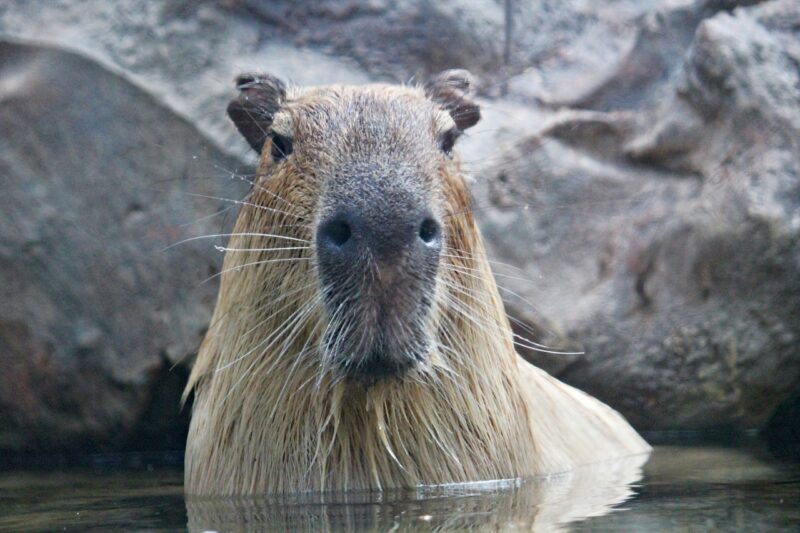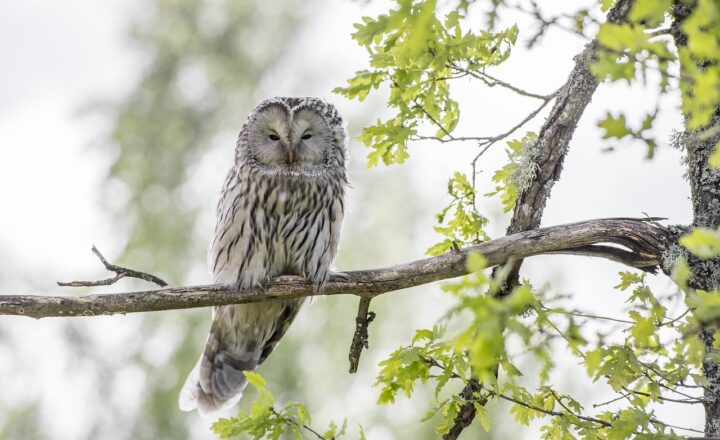The Surprisingly Gentle Nature of Capybaras: Why These Giant Rodents Are So Friendly
November 13, 2024

Capybaras, often mislabeled as mere rodents, are fascinating creatures that have captured the hearts of animal enthusiasts worldwide. As the largest rodent species on the planet, these gentle giants are unique in many ways. Known for their friendly demeanor and social nature, capybaras stand out as exemplars of kindness in the animal kingdom.
1. A Brief Overview of Capybaras
Capybaras (Hydrochoerus hydrochaeris) are native to South America and can often be found residing near bodies of water such as rivers, lakes, and wetlands. These fascinating creatures can weigh up to 150 pounds and measure about 4 feet in length. Despite their slightly intimidating size, capybaras are surprisingly gentle and exhibit behaviors that make them ideal companions, both for their peers and humans.
Capybaras are semi-aquatic mammals belonging to the Caviidae family, which includes guinea pigs and rock cavies. Their webbed feet and streamlined bodies make them excellent swimmers, allowing them to escape predators and venture into water for foraging.
2. The Social Life of Capybaras
One of the most intriguing aspects of capybara behavior is their social nature. They are highly gregarious animals, often found in groups that range from 10 to 20 members, though some larger gatherings can number in the hundreds. Living in social groups provides capybaras with safety, as there are more eyes to watch for predators such as jaguars, caimans, and anacondas.
Capybaras are known for their cooperative behavior. They will groom each other, share food, and communicate in a variety of ways, including barks, whistles, and purrs. This social structure is vital for their well-being, as it fosters strong bonds among group members and helps reduce stress.
Moreover, these animals have a peculiar habit of forming friendships with other species, including birds and monkeys. Often referred to as the “friendliest animals on the planet,” capybaras exhibit nurturing behaviors, which extend beyond their species and into interspecies friendships.
3. Understanding Their Gentle Nature
The gentle demeanor of capybaras can be traced back to several characteristics that define their behavior. Their naturally placid temperament sets them apart from more aggressive animal species, making them approachable by both humans and other animals.
These creatures are herbivorous, primarily consuming grasses, aquatic plants, and fruits. Their diet is low in both aggression and competition, which influences their temperament. Capybaras demonstrate a non-confrontational attitude towards life, reflecting their herbivorous lifestyle. They do have sharp teeth designed for cutting through tough vegetation, but they seldom resort to biting unless threatened.
Furthermore, capybaras have evolved to be more passive due to their living conditions, which are replete with potential threats. By embracing a social, gentle approach, they improve their chances of survival in the wild.
4. Capybaras and Human Interaction
The friendly nature of capybaras has made them popular animals in zoos, sanctuaries, and even as pets in some regions. They are frequently described as cuddly and affectionate creatures, often seeking out human interaction. While the idea of keeping a capybara as a pet may sound appealing, it is critical to note that they require a specialized environment and social structure to thrive.
Caring for a capybara means providing them with space, companionship (ideally, another capybara), and a diet rich in fiber. They also require access to water for swimming and socializing. Without adequate attention to their social needs, capybaras can become stressed and exhibit unwanted behaviors.
Capybaras in sanctuaries are often used in therapy settings, where their calm and friendly demeanor can have positive effects on individuals in need of emotional support. Their ability to connect with people is unparalleled, making them excellent companions in various therapeutic environments.
5. The Role of Capybaras in Their Ecosystem
Capybaras play an essential role in their ecosystem, contributing to biodiversity and the health of their environment. As herbivores, they help to manage plant growth, preventing overgrowth and maintaining a balanced ecosystem. Their grazing patterns promote the growth of grasses and aid in nutrient cycling.
Additionally, the presence of capybaras benefits other species, particularly birds. Many birds, including egrets and herons, are known to accompany capybaras, feeding on insects and parasites that infest their fur. In this way, capybaras support a thriving community of flora and fauna, showcasing their gentle nature not just towards each other, but towards the environment as a whole.
6. Conservation and Future of Capybaras
Although currently classified as a species of Least Concern, capybaras face numerous threats such as habitat destruction, hunting, and climate change. Preservation of wetlands and sustainable practices is crucial for ensuring their survival. Conservation efforts focusing on preservation, including protecting their habitats and understanding their behavioral ecology, must be a priority for maintaining healthy capybara populations.
Engaging local communities in these conservation practices shows promise in maintaining harmonious relationships between capybaras and human populations. By appreciating their unique qualities and spreading awareness about these gentle creatures, we contribute to their survival.
Conclusion
Capybaras are extraordinary animals that embody gentleness and social cooperation. Their friendly interactions with humans and other species reveal the beauty of their nature and the importance of community. The gentle nature of capybaras is not just a reflection of their interaction with the world but also emphasizes the interconnectedness of life. As we endeavor to protect these gentle giants, we embrace not only their survival but the principles of kindness and cooperation that they represent in our broader ecosystem.
So, the next time you admire a capybara, remember they are more than just giant rodents; they are a testament to the power of gentleness and social bonds in the animal kingdom.







